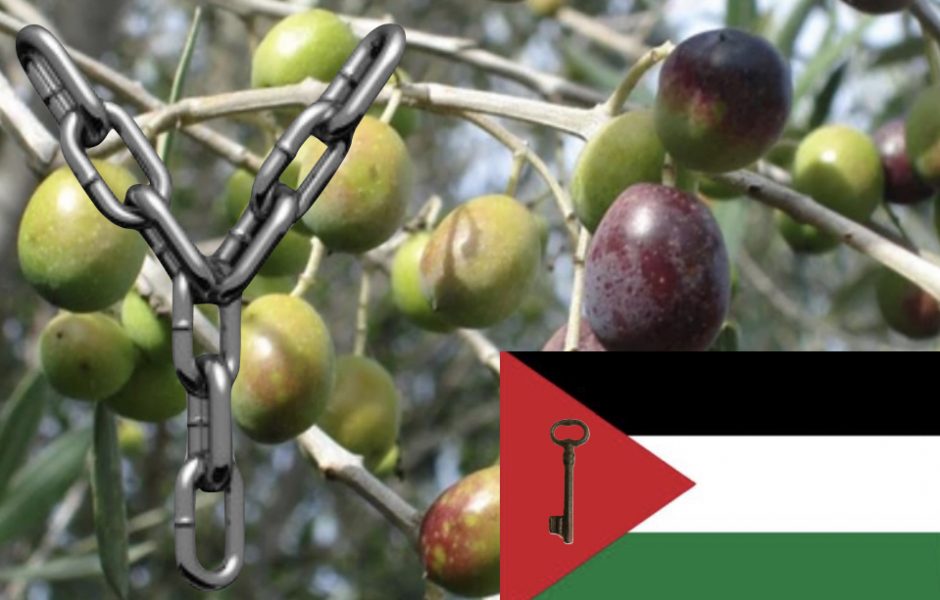United Nations

© UNICEF/Eyad El Baba
UN humanitarians reiterated their resolve on Tuesday to help the people of Gaza, where increasing numbers of children are on “the brink of death” from acute hunger, caused by five months of intense Israeli bombardment and constant aid access denials.
“What doctors and medical staff are telling us is more and more they are seeing the effects of starvation; they’re seeing newborn babies simply dying because they (are) too low birth weight,” said Dr Margaret Harris from the UN World Health Organization (WHO).
“Increasingly, we’re seeing children that are at the point, brink of death that need refeeding,” the WHO spokesperson told journalists in Geneva, a day after global nutrition experts warned that famine could happen “anytime” in northern Gaza.
‘Hunger, starvation, famine’
In response to the findings of Integrated Food Security Phase Classification (IPC) report on Gaza published on Monday, UN human rights chief Volker Türk insisted that “hunger, starvation and famine” were the result of Israel’s “extensive restrictions on the entry and distribution of humanitarian aid and commercial goods”, mass population displacement and the destruction of crucial civilian infrastructure.
Mr. Türk noted that “in the face of starvation” families have now resorted to sending children from northern to southern Gaza “unaccompanied in the desperate hope that they will find food and support among the 1.8 million people already displaced there”.
The High Commissioner’s comments on Gaza’s deepening hunger crisis echoed warnings from UN Secretary-General António Guterres on Monday who reiterated his appeal to the Israeli authorities “to ensure complete and unfettered access for humanitarian goods throughout Gaza”.
Speaking outside the Security Council in New York, Mr. Guterres also urged the international community “to fully support” the UN’s humanitarian efforts.
“Palestinians in Gaza are enduring horrifying levels of hunger and suffering”, the UN chief said, describing the IPC report as an “appalling indictment of conditions on the ground for civilians”.
Pregnancy dangers
While infants and young children are among the least able to cope with chronic hunger according to WHO, the UN health agency said that medical teams in the war-shattered enclave have been admitting increasing numbers of dangerously underweight pregnant women.
The complications that they have happen “if you’re trying to carry a pregnancy and you lack the nutrition,” said Dr. Harris, who insisted that the famine danger in Gaza was purely a result of the war, sparked by Hamas-led terror attacks in Israel on 7 October.
“This is entirely man-made, everything we’re seeing medically; this was a territory where the health system functioned well,” said Dr Harris, adding that malnutrition was “non-existent”. “It was a population that could feed itself,” she insisted.
Feeding centre plan
To help the most vulnerable Gazans and save lives, WHO aims is now establishing emergency malnutrition stabilisation centres. But progress has been hampered by a lack of safety and ongoing aid access obstacles, Dr Harris maintained.
“We’ve set one up in the south, we’re looking at doing it in the north…but the problem is we have to be able to bring the materials in – but we can’t bring them in at the scale and to the people without the access and the safety. So there is no answer until there’s a ceasefire.”
“The desperation is so great,” Dr Harris continued, before insisting that aid needed to be allowed into Gaza at a “huge, huge scale”. When that happens, the relief supplies “will be absorbed like sand”, she said.

More than 350,000 families in Gaza have received flour distributed by UNRWA.
Vast job losses
Underscoring the dire impact of the war in Gaza and beyond, a new report by the UN labour agency, ILO, indicated that it has led to the loss of 507,000 jobs in the Occupied Palestinian Territory.
This has already had a “devastating impact” on the regional economy, said ILO spokesperson Zeina Awad, who added that if the conflict continues, the unemployment rate in the territory is expected to reach 57 per cent.
The new data – sourced by ILO and the Palestinian Central Bureau of Statistics (PCBS) – estimates that as of 31 January, around 201,000 jobs were lost in the Gaza Strip, accounting for around two-thirds of total employment in the enclave.
In addition, 306,000 jobs – or over one-third of total employment – were also lost in the West Bank, where economic conditions have been severely impacted.
UNRWA probe findings
On Tuesday, the UN chief was scheduled to hear the interim findings of one of two investigations into UNRWA, following serious allegations that some of its staff had collaborated with Hamas during the 7 October terror attacks on Israel.
Of the 12 UNRWA staff implicated in the allegations, the UN agency immediately identified and terminated the contracts of 10; another two were confirmed dead.
“Any UN employee involved in acts of terror will be held accountable, including through criminal prosecution,” UNWRWA said in a statementon its website.
Mr. Guterres was due to meet Catherine Colonna, former Minister of Foreign Affairs of France, who heads the Independent Review Group. Its work was scheduled to begin on 14 February aided by three research organizations: the Raoul Wallenberg Institute in Sweden, the Chr. Michelsen Institute in Norway, and the Danish Institute for Human Rights.
The final report, which will be made public, is expected to be completed by late April.
A second, separate investigation is also underway, by the UN’s Office of Internal Oversight Services (OIOS). It conducts administrative investigations into allegations of misconduct in the workplace. This includes alleged breaches of UN staff regulations, rules and codes of conduct. The findings of this probe will also be presented in a report to the UN Secretary-General

there will be investigation against people who dare to stand against brutal occupation but no one want to investigate those responsible for the killing thousands of
children.